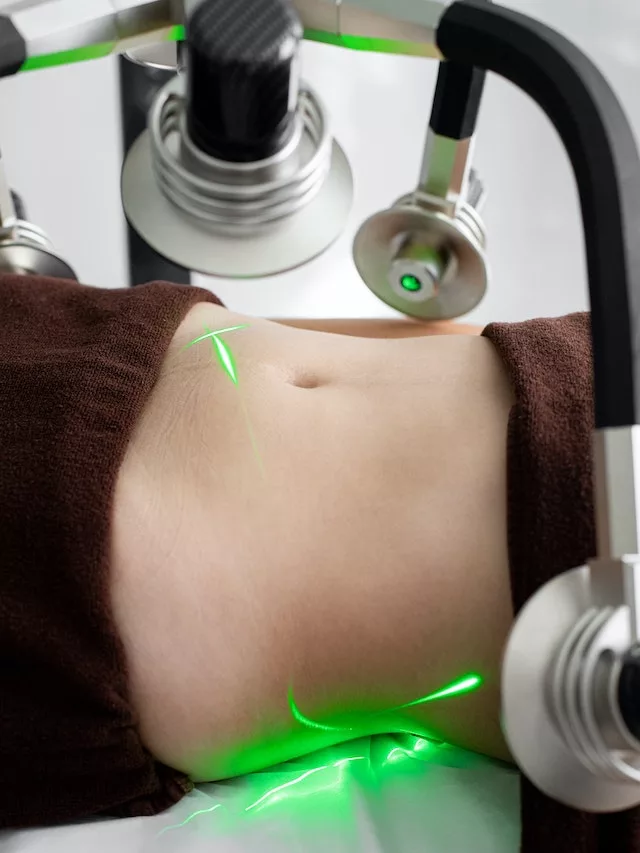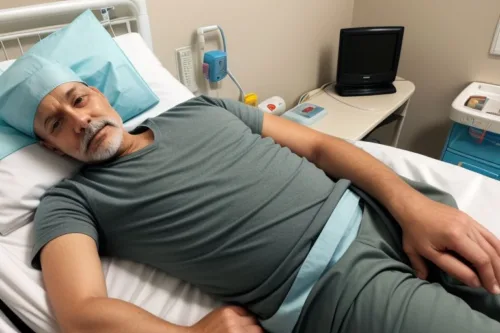Gallbladder Cancer: Unveiling the Silent Killer


Gallbladder Cancer: Unveiling the Silent Killer
Gallbladder cancer is a relatively rare but deadly form of cancer that often goes undetected until it is too late. The gallbladder is a small organ located just beneath the liver, which is responsible for storing and releasing bile to aid in digestion. Unfortunately, the symptoms of gallbladder cancer often do not appear until cancer has spread to other parts of the body, making it difficult to treat.
The Causes and Risk Factors of Gallbladder Cancer
The exact causes of gallbladder cancer are not fully understood. However, there are several known risk factors that increase the likelihood of developing the disease. These include:
- Gender: Women are more likely to develop gallbladder cancer than men.
- Age: The risk of developing gallbladder cancer increases with age.
- Ethnicity: Native Americans and Hispanics are at a higher risk of developing gallbladder cancer.
- Gallstones: The presence of gallstones can increase the risk of developing gallbladder cancer.
- Chronic inflammation: Chronic inflammation of the gallbladder or bile ducts can increase the risk of developing gallbladder cancer.
- Obesity: Obesity has been linked to an increased risk of developing gallbladder cancer.

Symptoms of Gallbladder Cancer
The symptoms of gallbladder cancer can be vague and easily mistaken for other conditions. Some of the most common symptoms include:
- Abdominal pain: Pain in the upper right side of the abdomen that may radiate to the back or shoulder.
- Jaundice: Yellowing of the skin and eyes.
- Nausea and vomiting: Feeling sick to the stomach and vomiting.
- Loss of appetite: Not feeling hungry or not wanting to eat.
- Unintentional weight loss: Losing weight without trying.
Diagnosis and Treatment of Gallbladder Cancer
Diagnosing gallbladder cancer can be difficult due to the lack of specific symptoms. Doctors may use a combination of tests, including blood tests, imaging tests, and biopsies to confirm a diagnosis. Once diagnosed, treatment may include surgery to remove the gallbladder and any affected surrounding tissue. In some cases, chemotherapy and radiation therapy may also be recommended.

Preventing Gallbladder Cancer
It is a serious and potentially deadly disease, with risk factors that include age, gender, and certain medical conditions. While there is no guaranteed way to prevent gallbladder cancer, there are steps you can take to reduce your risk. By making lifestyle changes and taking proactive measures, you can improve your overall health and potentially lower your chances of developing gallbladder cancer.
Maintaining a Healthy Weight : Obesity is a well-known risk factor for the cancer, as well as many other health conditions. Excess body weight can lead to a number of health problems, including gallstones, which are a common precursor to gallbladder cancer. By maintaining a healthy weight, you can reduce your risk of gallbladder cancer and improve your overall health.
Eating a Healthy Diet : Eating a diet rich in fruits and vegetables is not only good for your overall health, but it can also help reduce your risk of gallbladder cancer. These foods are high in antioxidants and other compounds that can help protect against cancer. Additionally, a diet low in fat and high in fiber can help reduce the risk of gallstones, which are a common risk factor for gallbladder cancer.
Staying Physically Active : Regular physical activity is important for maintaining a healthy weight and reducing your risk of many health conditions, including gallbladder cancer. Exercise can help improve your digestion, reduce inflammation, and boost your immune system, all of which can help reduce your risk of gallbladder cancer.
Quitting Smoking : Smoking is a well-known risk factor for many health conditions, including gallbladder cancer. Smoking can damage the cells in your body, making them more susceptible to cancer. By quitting smoking, you can reduce your risk of gallbladder cancer and improve your overall health.
Regular Screenings and Check-ups : While there is no standard screening test for gallbladder cancer, regular check-ups and screenings for related conditions, such as gallstones, can help detect problems early and improve outcomes. If you have a family history of gallbladder cancer or other risk factors, your doctor may recommend more frequent screenings.
Gallbladder cancer is a serious and potentially deadly disease that can be difficult to diagnose and treat. However, with early detection and prompt treatment, it is possible to improve outcomes and increase the chances of a successful recovery.
By making lifestyle changes, such as maintaining a healthy weight, eating a healthy diet, staying physically active, and quitting smoking, you can reduce your risk of gallbladder cancer and improve your overall health.
Additionally, regular check-ups and screenings for related conditions can help detect problems early and improv outcomes. If you experience any of the symptoms associated with gallbladder cancer, such as abdominal pain, jaundice, or unexplained weight loss, it is important to speak with your doctor right away. With the right approach, it is possible to reduce your risk of gallbladder cancer and improve your overall health and well-being.


